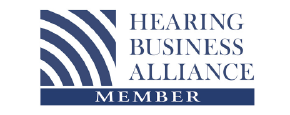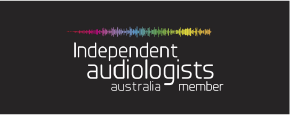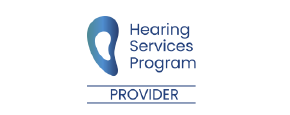Are you looking for a hearing test in Bald Hills?
Are you having difficulty communicating? Our expert audiologists at Hearing Help can help improve your hearing clarity. Book your consultation today and reconnect with the sounds and people you love!
Hearing Test in Bald Hills Brisbane
Are you looking for Hearing Test in Bald Hills Brisbane? We are conveniently located within the Newport Physio and Health clinic at Newport Marketplace. We offer comprehensive hearing tests and assessments for adults and children. With over 20 years of experience, our trusted audiologists provide personalised care tailored to individual needs, prioritising client-centered care. Regular hearing tests are crucial for identifying potential hearing issues early, improving treatment outcomes and preventing further hearing loss. A hearing test evaluates the auditory system to assess hearing function and identify impairments or disorders affecting sound processing. To ensure optimal outcomes, it’s essential to understand the hearing test process, treatment options, and importance of ongoing care and support for overall hearing health.
About Hearing Help
With over two decades of experience in the audiology industry, Hearing Help has established itself as a trusted provider of comprehensive hearing healthcare services. Our team of experienced audiologists and hearing specialists are dedicated to delivering personalised care tailored to the unique needs of each client. We utilise state-of-the-art technology and evidence-based practices to ensure accurate diagnoses and effective treatment plans.
Our comprehensive services include hearing assessments, hearing aid fittings, tinnitus management, and earwax removal. We also provide hearing protection and conservation solutions for individuals exposed to loud noises. At Hearing Help, we prioritise ongoing education and training to stay at the forefront of advancements in audiology. This commitment enables us to deliver the most effective and efficient hearing healthcare services in the region. Our aim is to empower individuals with the knowledge and support necessary to maintain optimal hearing health and improve overall quality of life.
Why Choose Hearing Help?

Hearing Help is a trusted and experienced audiology clinic located in Newport 4020, Brisbane serving Bald Hills. They provide exceptional hearing services throughout the North Brisbane and Moreton Bay regions, ensuring high-quality care for their clients. As an independent audiology practice, they are committed to following “Best Practices” to ensure tailored solutions for each individual’s unique hearing needs. They offer a comprehensive range of services, including hearing tests for adults and children, tinnitus assessments and treatment, earwax removal, auditory processing assessments, and hearing aid fittings. Their dedication to client-centred care ensures your hearing goals are a top priority.
Importance of hearing health and regular hearing tests
Maintaining good hearing health is essential for overall well-being, and regular hearing tests play a significant role in achieving this. Hearing loss can have a substantial impact on daily life, affecting communication, relationships, and overall quality of life. By scheduling regular hearing tests, individuals can identify potential hearing issues early, allowing for prompt intervention and treatment. Early detection can significantly improve treatment outcomes, preventing further hearing loss and reducing the risk of related health problems, such as cognitive decline, depression, and social isolation. Furthermore, hearing tests can also detect underlying medical conditions, such as earwax buildup, middle ear infections, or tumors, highlighting the importance of incorporating regular hearing assessments into one’s healthcare routine.
What is a Hearing Test?
A person’s hearing test is a comprehensive evaluation of their auditory system, designed to assess the sensitivity, acuity, and overall function of their hearing. This evaluation is crucial in identifying any hearing impairments, abnormalities, or disorders that may be affecting an individual’s ability to hear and process sound. A hearing test is typically administered by an audiologist or a hearing specialist who uses standardised equipment and techniques to assess hearing function.
The primary goal of a hearing test is to determine the extent to which an individual can detect, process, and understand different frequencies and intensities of sound. The test results provide valuable information about the individual’s hearing threshold, which is the minimum level of sound that they can detect. By evaluating hearing function, healthcare professionals can diagnose hearing-related problems, develop effective treatment plans, and monitor progress over time. Accurate hearing test results are essential for ensuring proper hearing health and addressing any hearing-related concerns.
Types of Hearing Tests
To assess various aspects of hearing function and identify potential disorders, several types of hearing tests are employed by audiologists and hearing specialists, each with its own unique purpose and methodology. Pure-tone audiometry is a fundamental test that measures an individual’s ability to detect sounds at different frequencies and intensities. Speech audiometry evaluates an individual’s ability to understand speech in various conditions, such as in quiet or noisy environments. Impedance audiometry, also known as tympanometry, assesses the function of the middle ear system by measuring the movement of the eardrum and the reflexes of the middle ear muscles. Otoacoustic emissions testing (OAE) measures the sounds produced by the inner ear in response to sound stimulation, which can help identify hearing loss in infants and young children. Finally, auditory brainstem response (ABR) testing evaluates the neural pathways of the auditory system, from the ear to the brainstem. Each of these tests provides valuable information about an individual’s hearing function and helps diagnose potential hearing disorders. By combining the results of these tests, audiologists can develop a comprehensive understanding of an individual’s hearing abilities and identify the most effective treatment options.
Preparing for Your Hearing Test
As you prepare for your hearing test , it’s essential to understand what to expect during the assessment. The process typically begins with your arrival and a brief consultation, followed by a series of tests designed to evaluate your hearing ability. By understanding the steps involved and how to prepare, you can ensure a smooth and efficient experience, allowing for accurate results and effective recommendations for your hearing health.
What to Expect
Preparation is key to ensuring your hearing test is a comfortable and efficient experience, enabling our audiologists to provide accurate diagnoses and tailored solutions. To prepare, it is essential to gather relevant information about your medical and hearing history. This includes any previous hearing tests, ear surgeries, or balance problems. A list of your current medications and any allergies should also be compiled.
It is also crucial to consider your schedule and any external factors that may impact your test results. For instance, if you have been exposed to loud noises recently or have an ear infection, it may be advisable to reschedule your appointment. Additionally, bringing a friend or family member for support can be beneficial, as they may be able to provide valuable insights into your hearing difficulties. By being prepared, you can ensure that your hearing test is a valuable and informative experience.
Description of the process from arrival to completion
Upon arrival at our Hearing clinic, a comprehensive hearing assessment process begins, involving a series of evaluations and examinations designed to assess the full range of your hearing capabilities. Our experienced audiologists will greet you and begin by reviewing your medical history and any concerns you may have regarding your hearing. This initial consultation helps us tailor the assessment to your specific needs.
Next, we conduct a series of assessments to evaluate your hearing thresholds, including pure-tone audiometry and speech audiometry. These tests are designed to detect the faintest sounds you can hear, as well as your ability to understand speech in various environments. We also conduct otoscopy and tympanometry to assess the health and function of your middle ear. Additional tests, such as otoacoustic emissions or auditory brainstem response testing, may be conducted if necessary.
Throughout the assessment process, our audiologists will explain each step and answer any questions you may have. Our goal is to provide a comprehensive understanding of your hearing abilities and identify any potential issues or areas of concern. By the completion of the assessment, we will have a thorough understanding of your hearing health and be able to provide personalised recommendations for your specific needs.
Duration of a typical hearing test
Typically, a comprehensive hearing test at our hearing clinic takes around 30-60 minutes to complete, depending on the complexity of the assessment and the individual’s specific needs. This timeframe allows our experienced audiologists to conduct a thorough evaluation of an individual’s hearing, including pure-tone audiometry, speech audiometry, and tympanometry. The test duration may vary if additional assessments are required, such as auditory brainstem response (ABR) testing or otoacoustic emission (OAE) testing.
It is essential to allocate sufficient time for the hearing test to ensure accurate results and allow our audiologists to provide a comprehensive diagnosis and recommendations. Within this timeframe, our audiologists will also take the opportunity to discuss an individual’s medical history, hearing concerns, and lifestyle to provide personalised advice and treatment options. By allocating 30-60 minutes for the hearing test, we can provide a thorough and accurate assessment, enabling us to deliver the best possible outcomes for our patients.
Tips for preparing for a hearing test
To ensure the most accurate and effective hearing test results, it is recommended that individuals take certain steps to prepare beforehand, which can help our audiologists to obtain a comprehensive understanding of their hearing health. One key step is to provide a thorough medical history, including any previous hearing problems, ear surgeries, or balance issues. Additionally, individuals should avoid exposure to loud noises for at least 48 hours prior to the test.
It is also essential to remove any earwax or debris from the ear canal before the test, as excessive earwax can affect the accuracy of the results. Furthermore, individuals should refrain from taking any medications that may affect hearing, such as certain antibiotics or chemotherapy. On the day of the test, individuals should arrive early to complete any necessary paperwork and ask questions. By taking these preparatory steps, individuals can help ensure that their hearing test results accurately reflect their hearing health, enabling our audiologists to provide effective treatment and recommendations. This preparation will ultimately lead to better hearing outcomes and improved overall quality of life.
The Hearing Test Procedure
The hearing test procedure begins with an initial consultation, where you will meet with one of our experienced audiologists to discuss your symptoms and concerns. During this conversation, your audiologist will also take a thorough medical history to identify any potential underlying causes of your hearing issues. This information will inform the selection of tests to be conducted, ensuring a comprehensive assessment of your hearing health.
Initial Consultation
Conducting a thorough initial consultation is a crucial step in assessing an individual’s hearing health, allowing our experienced audiologists to gather essential information and tailor the hearing test procedure to their unique needs. This personalised approach ensures that each patient receives an accurate diagnosis and effective treatment plan. During the consultation, we will review the purpose and process of the hearing test procedure, ensuring that patients understand what to expect and are comfortable throughout the assessment.
Our state-of-the-art facility, are designed to provide a comfortable and distraction-free environment for the hearing test procedure. Our expert audiologists utilise cutting-edge technology to assess various aspects of hearing, including sound localisation, speech recognition, and middle ear function. By investing time and attention in the initial consultation, we establish a strong foundation for a comprehensive and accurate hearing assessment, enabling us to provide the best possible care for our patients.
Discussion with an audiologist about symptoms and medical history
During a comprehensive discussion with one of our experienced audiologists, patients are encouraged to share their symptoms and medical history to help identify potential underlying causes of hearing loss or other audiological concerns. This conversation is a crucial component of the hearing test procedure, as it allows our audiologists to gather valuable information about the patient’s overall health and any factors that may be contributing to their hearing difficulties.
Patients will be asked to describe their symptoms in detail, including when they first noticed a problem, how long they have been experiencing it, and any factors that seem to exacerbate or alleviate the issue. Our audiologists will also inquire about the patient’s medical history, including any previous ear problems, head injuries, or exposure to loud noises. This information will help our audiologists to develop a comprehensive understanding of the patient’s hearing health and to tailor the testing process to their individual needs.
Conducting the Tests
Utilising state-of-the-art equipment and techniques, our experienced audiologists will guide patients through a series of tests designed to assess various aspects of their hearing, including threshold sensitivity, sound localisation, and speech understanding. The tests are conducted in a soundproof room to minimise external noise interference and ensure accurate results.
The first test is pure tone audiometry, which assesses the patient’s ability to detect different frequencies. This is followed by speech audiometry, which evaluates the patient’s ability to understand speech in various environments. Other tests, such as tympanometry and acoustic reflex testing, may also be conducted to assess middle ear function and neural pathway integrity.
Throughout the testing process, our audiologists will provide clear instructions and ensure the patient’s comfort and understanding. The tests are non-invasive and pain-free, and the results are analysed to provide a comprehensive understanding of the patient’s hearing abilities. The results will be discussed with the patient in detail, and recommendations for further treatment or management will be provided if necessary.
Post-Test Consultation
Following the completion of the hearing test, a comprehensive post-test consultation is conducted to discuss the results and their implications. During this consultation, the audiologist will outline available treatment options and provide personalised recommendations tailored to the individual’s specific needs. Additionally, scheduling of follow-up appointments will be arranged to monitor progress and make any necessary adjustments to the treatment plan.
Treatment Options and Recommendations
Based on the results of your hearing test, a comprehensive post-test consultation will be conducted to discuss the most suitable treatment options and recommendations tailored to address your specific hearing needs. Our experienced audiologists will take the time to thoroughly explain the results of your hearing test, highlighting any areas of concern and the most effective treatment options available. We understand that every individual’s hearing needs are unique, and our recommendations will be personalised to ensure the best possible outcomes.
Treatment options may include the use of hearing aids, assistive listening devices, or alternative solutions such as sound therapy. Our audiologists will also provide guidance on effective communication strategies to help improve your overall listening and communication skills. In addition, we will discuss any necessary referrals to Ear, Nose, and Throat (ENT) specialists or other healthcare professionals to address any underlying medical conditions that may be contributing to your hearing loss.
Scheduling Follow-Up Appointments
To ensure optimal outcomes and address any ongoing needs, our audiologists will work with you to schedule follow-up appointments as necessary, providing a clear plan for ongoing care and support after the post-test consultation. These appointments allow us to monitor your progress, address any concerns, and make adjustments to your treatment plan if needed.
During the post-test consultation, our audiologists will discuss the recommended follow-up schedule with you, taking into account the severity of your hearing loss, treatment options, and individual needs. Regular follow-up appointments are essential to ensure that your hearing aids or other treatments are working effectively and to address any questions or concerns you may have.
Our team is committed to providing ongoing support and care to help you achieve the best possible outcomes. We also encourage you to contact us if you experience any changes in your hearing or have concerns between scheduled appointments. By working together, we can help you maintain optimal hearing health and improve your overall quality of life.
Book an appointment
Ready to hear the world more clearly? Contact Hearing Help today to schedule your personalised hearing consultation. Call us or visit our website to find your path to better hearing. We’re here to help you connect with every sound life has to offer.
Address: Newport Marketplace Shopping Centre
Tenancy M01, 10 Lakeview Promenade, Newport QLD 4020
(located inside Newport Physio rooms)
Phone: 07 3214 3641
Email: hello@hearinghelpredcliffe.com.au










